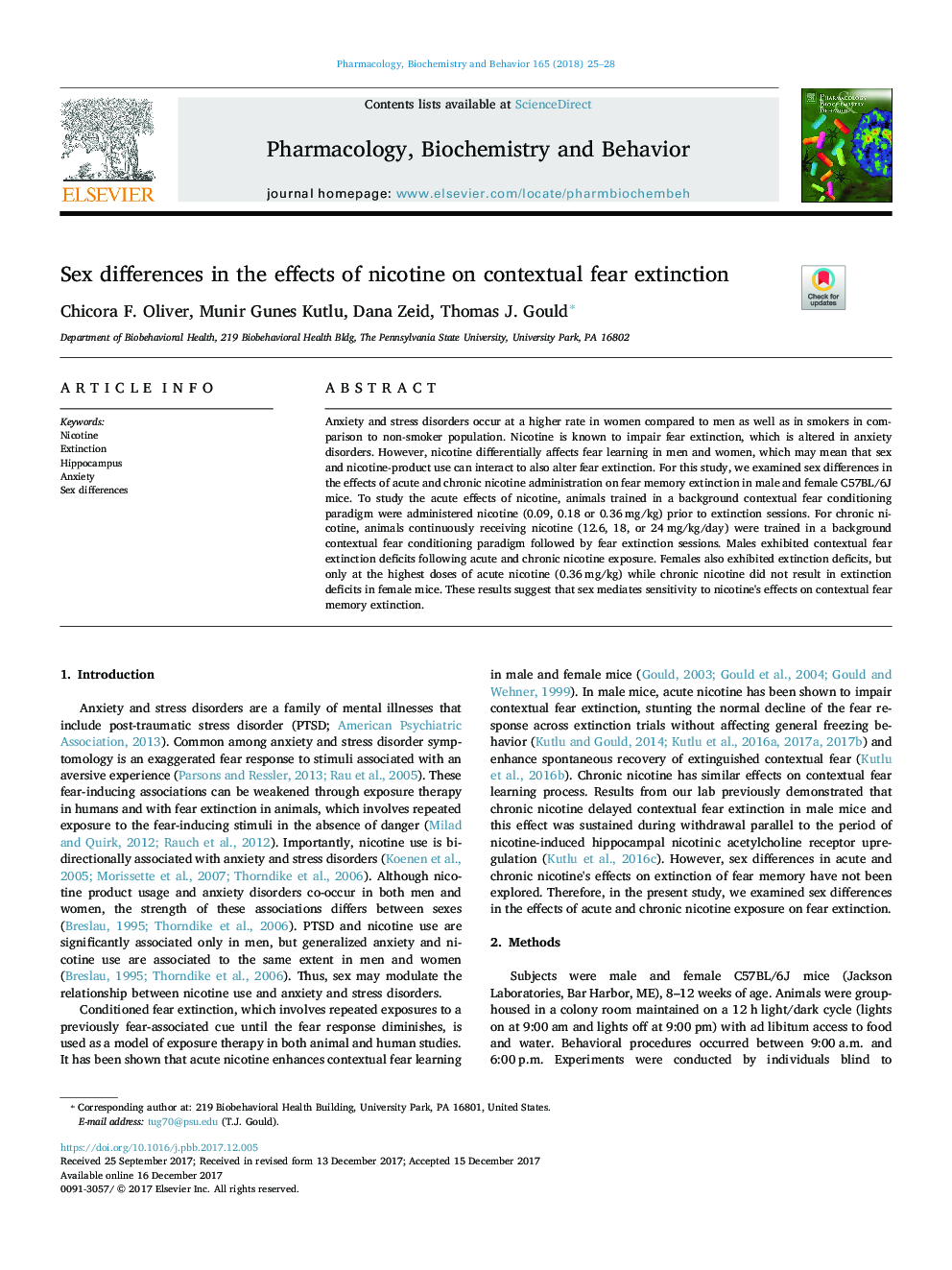| Article ID | Journal | Published Year | Pages | File Type |
|---|---|---|---|---|
| 8350031 | Pharmacology Biochemistry and Behavior | 2018 | 4 Pages |
Abstract
Anxiety and stress disorders occur at a higher rate in women compared to men as well as in smokers in comparison to non-smoker population. Nicotine is known to impair fear extinction, which is altered in anxiety disorders. However, nicotine differentially affects fear learning in men and women, which may mean that sex and nicotine-product use can interact to also alter fear extinction. For this study, we examined sex differences in the effects of acute and chronic nicotine administration on fear memory extinction in male and female C57BL/6J mice. To study the acute effects of nicotine, animals trained in a background contextual fear conditioning paradigm were administered nicotine (0.09, 0.18 or 0.36Â mg/kg) prior to extinction sessions. For chronic nicotine, animals continuously receiving nicotine (12.6, 18, or 24Â mg/kg/day) were trained in a background contextual fear conditioning paradigm followed by fear extinction sessions. Males exhibited contextual fear extinction deficits following acute and chronic nicotine exposure. Females also exhibited extinction deficits, but only at the highest doses of acute nicotine (0.36Â mg/kg) while chronic nicotine did not result in extinction deficits in female mice. These results suggest that sex mediates sensitivity to nicotine's effects on contextual fear memory extinction.
Related Topics
Life Sciences
Biochemistry, Genetics and Molecular Biology
Biochemistry
Authors
Chicora F. Oliver, Munir Gunes Kutlu, Dana Zeid, Thomas J. Gould,
